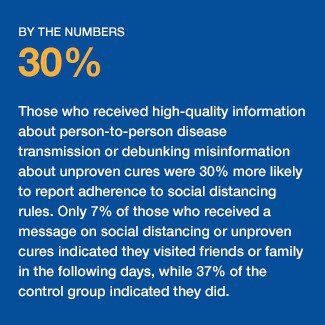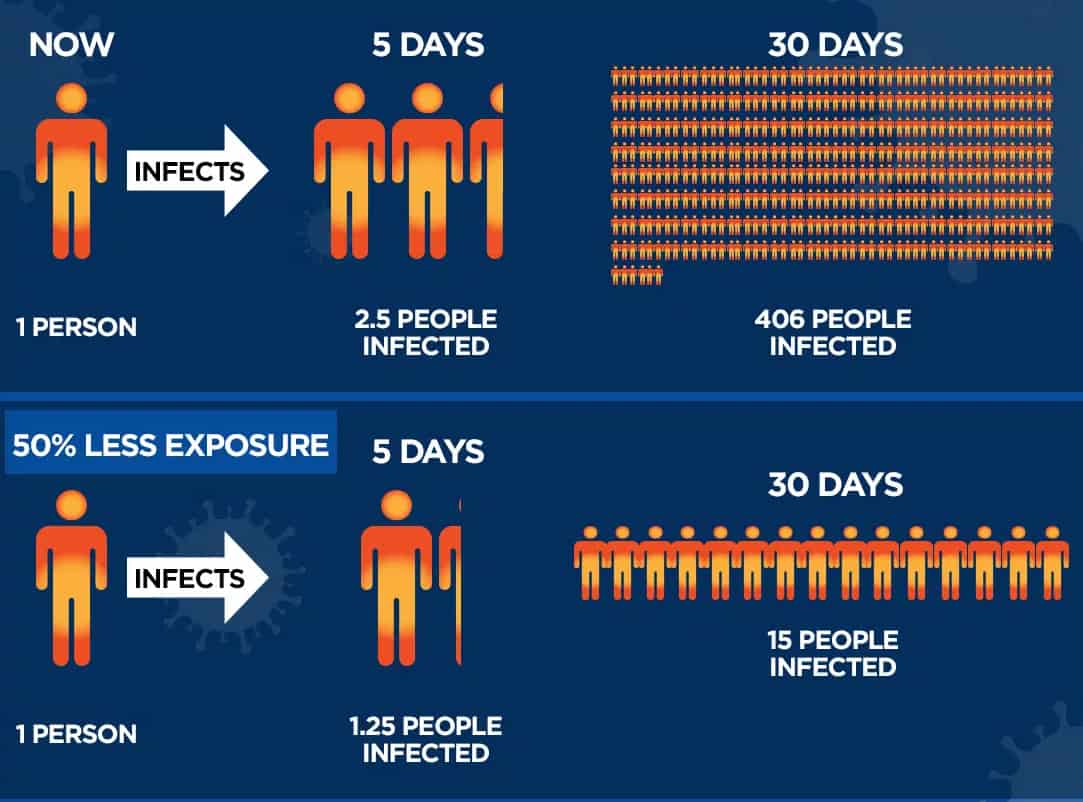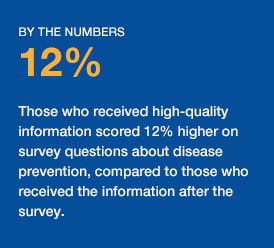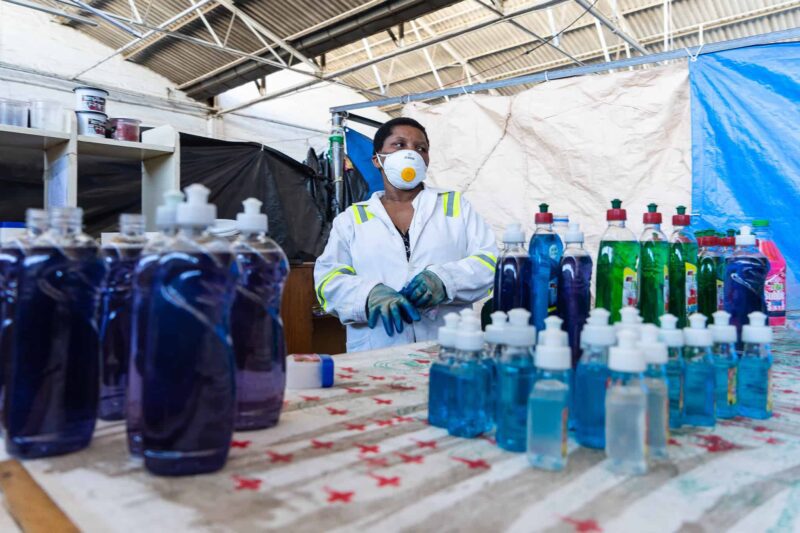 In Zimbabwe, Harvard University researchers conducted research alongside Internews and Kubatana, a local human rights and civic information NGO, to assess whether information delivered through WhatsApp messages can change beliefs and behaviours in light of the abundance of COVID-related misinformation circulating through social media.
In Zimbabwe, Harvard University researchers conducted research alongside Internews and Kubatana, a local human rights and civic information NGO, to assess whether information delivered through WhatsApp messages can change beliefs and behaviours in light of the abundance of COVID-related misinformation circulating through social media.
During the study period in early April, the government of Zimbabwe had just imposed a national lockdown to limit the spread of the COVID-19 virus. However, low trust in the government along with misinformation about the virus, which had spread widely on social media, threatened the likelihood of compliance with physical distancing in the country. To combat this problem, the study team crafted two messages over a two-week period to explain COVID-19 transmission rates, the importance of physical distancing and also to debunk misinformation about unproven cures. Kubatana disseminated the messages in English, Shona and Ndebele (the three main languages in Zimbabwe) through its WhatsApp broadcast lists.

Text of message 1 (sent with infographic)
With only 9 confirmed cases in Zimbabwe, and given the hardship lockdown imposes on people, many are questioning whether a 21 day lockdown is necessary, and what government’s plan is in the longer term. But, it is possible to have the Coronavirus and not show any symptoms. At least 25% of people who have Coronavirus never show symptoms. This means you could catch it from someone who does not know they are sick, and you could unknowingly pass it on to other people, without even realising you were carrying it. This graphic visually demonstrates how physical distancing can help to contain the spread Covid-19.
The study was carried out using a randomised control trial (RCT) design. More than 27,000 people subscribed to Kubatana’s WhatsApp broadcast lists were randomly assigned to receive COVID-related information on different days of the week. For two weeks, subscribers in roughly half of the lists received information on a Monday (the treatment group). Three days later a short survey was sent out to all lists to assess knowledge and behaviour about COVID-19. (Note – the control group received the COVID-related messages following the survey, so that they did not miss out on this important, fact-checked information.)
Text of message 2
Social media features a lot of false information about Coronavirus. One myth encourages people to breathe steam or drink hot water to kill Coronavirus. Importantly, neither breathing hot steam nor drinking hot water kills the virus. There is no miracle cure and researchers are doing their best to find something quickly, but it will take time. The best recommendations to avoid getting sick and to stop you spreading the virus are to:
- practise physical distancing
- hand wash thoroughly and frequently (with soap on your hands for 20 seconds)
- wash surfaces regularly and well, ideally with bleach or other disinfectant
The results indicate that respondents in the treatment group reported significantly better factual knowledge about COVID-19 than those in the control group: an increase of 12% in correct answers.
 They were also more likely to comply with physical distancing restrictions – only 7% of those who received a message on social distancing or debunking misinformation about unproven cures indicated they visited friends or family in the following days, while 37% of the control group indicated they did.
They were also more likely to comply with physical distancing restrictions – only 7% of those who received a message on social distancing or debunking misinformation about unproven cures indicated they visited friends or family in the following days, while 37% of the control group indicated they did.
There were no differential impacts across urbanity or self-identified gender: the messages were useful for increasing knowledge and social distancing across the board. Future research is needed to identify how to maximise the benefits of such messages while keeping audiences engaged. While misinformation easily spreads through social media channels, this study provides encouraging evidence that accurate, trusted information can also cut through. Information from trusted sources can get individuals to reconsider their misconceptions and correct behaviour that could impact on their health.
While WhatsApp has been identified as a platform through which misinformation easily spreads, the research shows that trusted organizations can also leverage WhatsApp’s reach to successfully get individuals to reassess misconceptions and correct related behavior.
(Banner photo: In Harare, Zimbabwe, Martha Maocha runs a detergent manufacturing company but has recently started making hand sanitising gel which protects against Covid19. Credit: KB Mpofu / ILO / CC)
